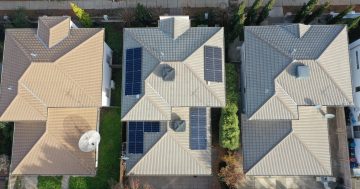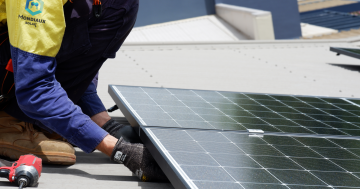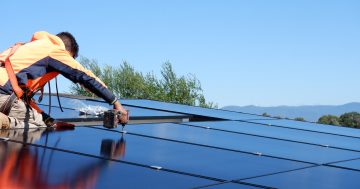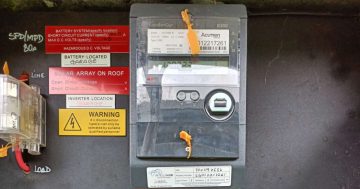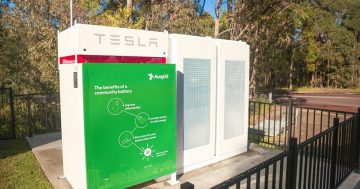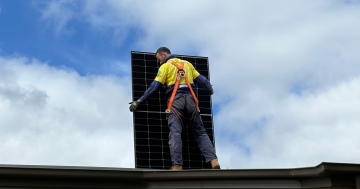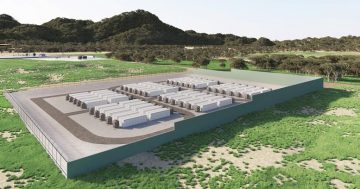
Mondiaux Solar after-sales manager Bruce Liu says now is the ideal time for householders to investigate how they can save with solar over summer. Photo: Liv Cameron.
With summer approaching and air conditioners starting to crank up across Canberra, households can save on their electricity costs by installing a custom-designed solar system.
However, making the most of the sun’s power is more than just whacking a few solar panels on the roof. The latest technology allows solar systems to be specially designed to meet the energy needs of individual households.
Mondiaux Solar after-sales manager Bruce Liu says the size of rooftop photovoltaic (PV) array, inverter power rating and battery capacity can make a huge difference to how well a solar system operates.
He also says timing is everything.
“Summer is the best time for solar production, but it’s also the time when consumption from air cons is huge,” Bruce said.
Solar systems can power air-conditioning units during the daylight hours, however it’s those hot Canberra nights that can really ramp up the electricity bills.
When the sun goes down, solar systems with a battery can usually store enough energy to power a home for a few hours, but once the battery runs down, consumers need to rely on expensive energy drawn from the grid.
Having a system with the correct size and battery capacity is crucial if you want to use the grid as a back-up.
In the mornings, Bruce says, most households are paying peak rates for electricity from the grid as they prepare for school and work.
But there is a clever alternative to maximise the use of solar and battery and reduce energy consumption from the grid during those peak times.
“For those on a Time of Use plan, the battery can be set to charge both from the solar during the day and from the grid during the off-peak hours of midnight until 4 am,” Bruce said.
“In this way, the battery will be able to supply the peak loads at night and then be charged from the grid to provide enough capacity to supply the peak loads again from 7 am until 9 am.”
By studying electricity bills and investigating each household’s energy use, Mondiaux can create a custom-designed system that will ensure solar power is available when it is needed most, with minimum cost.
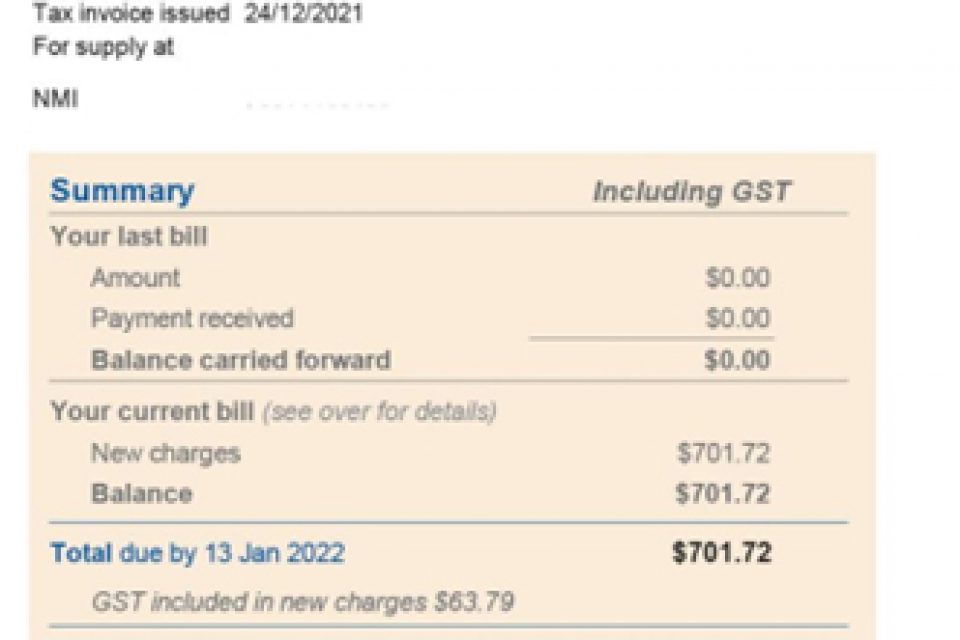
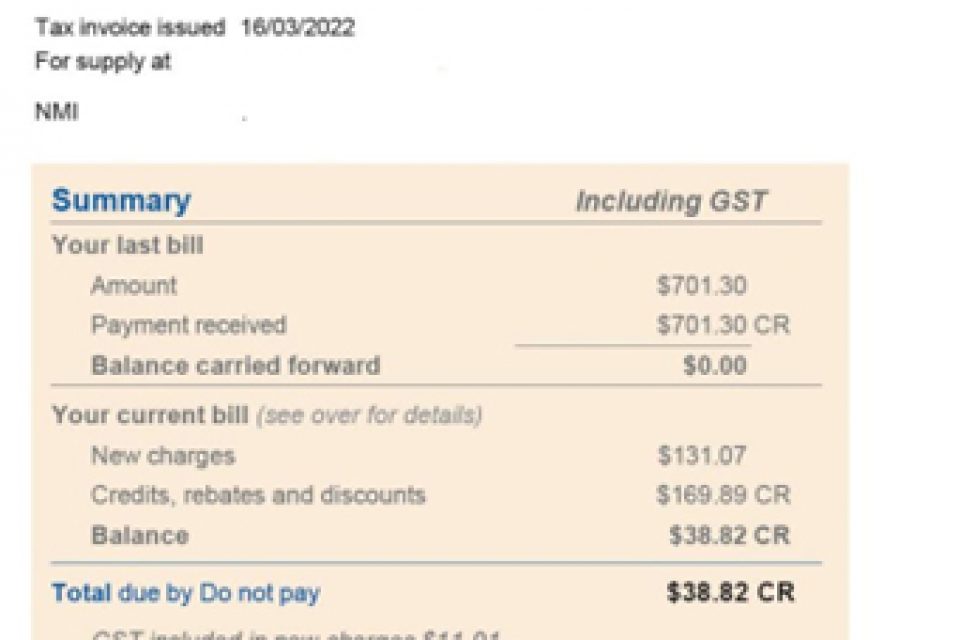
Bruce says Mondiaux can design a new solar with battery system that meets the household’s current consumption needs, retrofit a battery for the existing rooftop PV system, or retrofit a battery system with additional new rooftop panels.
“Once a battery system is installed, excessive PV production will first be used to charge the battery. This means for each kilowatt hour of electricity produced by the solar system, the client is saving on the electricity purchase price rather than being paid a low solar feed-in price,” he said.
“Instead of selling the excessive solar to the grid at a low feed-in tariff, the better choice is to store the excessive solar energy and use it to supply the loads at night.”
By using a solar monitoring app, the owner will be able to see when the home loads are working and whether they are supplied by the solar, grid or battery.
“In this way, home owners can adjust how and when they can use the load to make the most use of the solar and battery systems,” Bruce added.
One Mondiaux client had a 9.99-kilowatt solar system with a 10-kilowatt hour battery storage system installed in November 2021 and, over summer, their electricity bill dropped from $701 to $38 credit.
Another client had a winter electricity bill of $370 and, after installing a 6.66 kW solar system with a 10 kWh battery system, their summer bill was $111 in credit.
For home owners who work during the daytime and use most of their electricity at night, a customised system is the best way to save.
And Bruce says those still working from home during the daytime can stay cool and work in comfort with a solar system.
“If people are working from home and don’t have solar, they may not want to use their air con every day due to the cost,” he said.
“By installing a custom solar system, Canberrans can stay cool and know they won’t have a huge electricity bill at the end of summer.”
Mondiaux Solar has a professional system design and technical support team with a strong engineering background, providing customised system design, system installation and commissioning, as well as after-sales support across Canberra.












